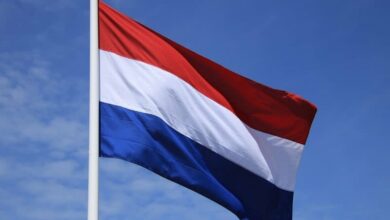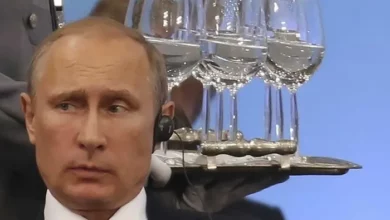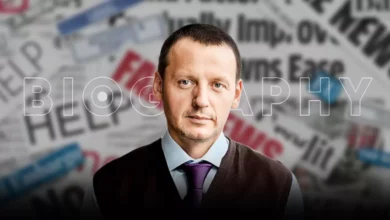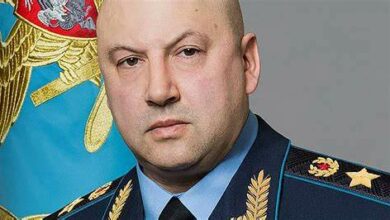Sergey Chemezov: Biography, Controversies and Sanctions on Rostec CEO
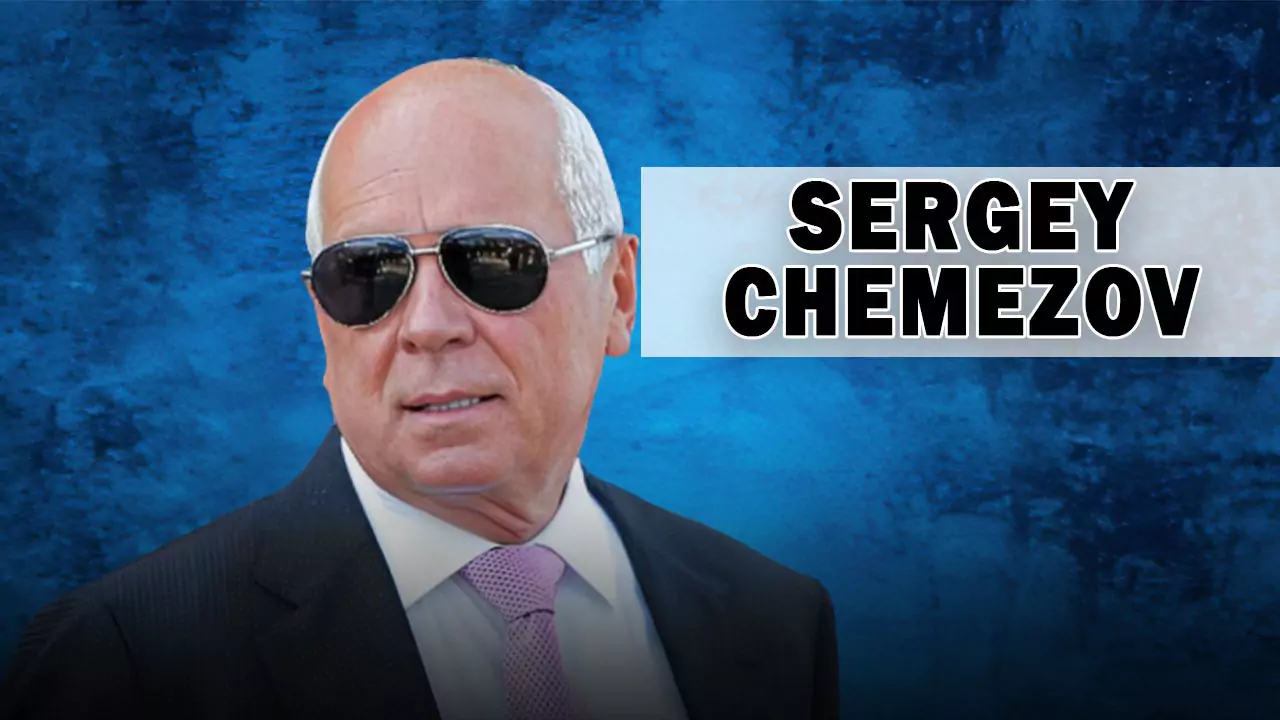
Early Life in Siberia
Sergey Chemezov, born on August 20, 1952, in Cheremkhovo, Irkutsk Oblast, embarked on a journey that began with academic excellence. After graduating with honours from the Irkutsk Institute of National Economy in 1975, he subsequently earned a doctorate in economics and became a professor.
Transition to Intelligence in East Germany
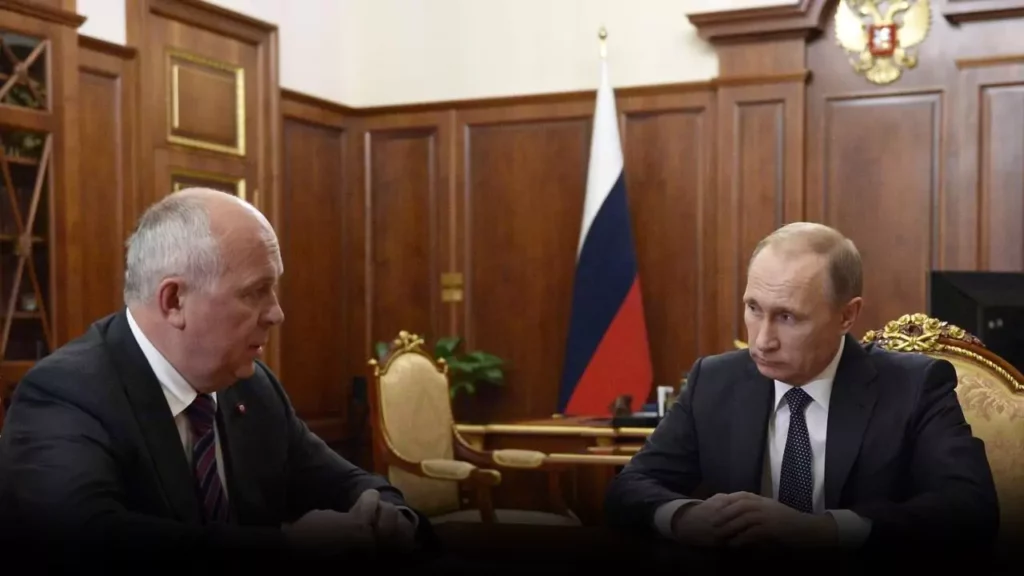
Chemezov’s career took a turn towards intelligence when he joined the KGB. From 1980 to 1988, he operated in East Germany at the “Luch” Research-Industrial Association, focusing on scientific and technical intelligence. During this time, he formed enduring friendships with Vladimir Putin and Nikolay Tokarev, both of whom would later become prominent figures in Russian politics.
Sovintersport and International Influence
In the post-Soviet era, Chemezov’s influence extended to international sports. From 1988 to 1996, he served as the deputy CEO of the “Sovintersport” Foreign Trade Association, a key player in Soviet sports dealings with the West. This period marked the creation of Sovintersport, a strategic move by Putin and Chemezov that held a monopoly in this domain.
Kremlin Aide to Putin
Transitioning into the political arena, Chemezov became the chairman of the Department for Foreign Economic Relations within the Office for Presidential Affairs from 1996 to 1999. This marked the beginning of his tenure as a Kremlin aide to Putin, a role that later evolved into the chairman of the Department for Foreign Economic Relations of the Presidential Administration of Russia.
Diplomatic Success and Geopolitical Contributions
During his time as a Kremlin aide, Chemezov played a pivotal role in securing Russia’s rightful share of the former USSR’s state property, archives, and debts, despite objections from Ukraine and Georgia. His diplomatic skills and strategic acumen contributed to Russia’s strengthened position on the international stage.
A Powerful Figure
Sergey Chemezov, the influential head of the Russian state corporation Rostec, emerged as a powerful figure in the country’s establishment, often compared to Rosneft’s Igor Sechin. His journey to Moscow was not straightforward, beginning in Cheremkhovo, where he grew up in a challenging environment, helping his family in a mill. Despite the difficulties, Chemezov’s father instilled values of hard work and resilience. In his youth, he engaged in boxing and demonstrated resourcefulness, even altering his father’s trousers to stay stylish.
Chemezov’s path led him to the Irkutsk Institute of National Economy, followed by work at the Irkutsk Research Institute of Rare and Non-Ferrous Metals. However, it was his assignment to head the representative office of “Luch” in Dresden, where he developed a lasting friendship with Vladimir Putin, then a KGB officer.
Entry into Arms Trade: Promexport to Rosoboronexport
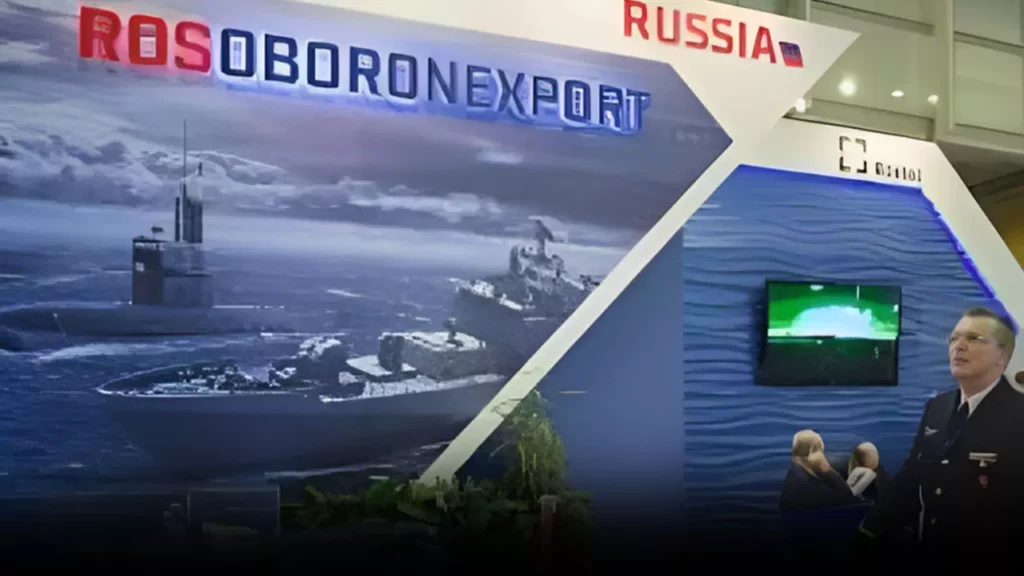
In 1999, Chemezov entered the arms trade by taking over the struggling Promexport, later merging it with Russian Technologies to form Rosoboronexport. The move faced opposition from within the Russian establishment, with figures like Ilya Klebanov resisting Chemezov’s ambitions. However, due to his close ties with Putin, Chemezov succeeded in creating a unified arms export entity. The new organization prioritized quantity over value in contracts to impress the leadership, achieving substantial arms export figures.
Role in Rosoboronexport (2007-2012)
In January 2007, Chemezov headed Rosoboronexport, later becoming the only arms exporter in Russia. The company’s influence extended to key defence enterprises, and Chemezov sought to diversify into various industries, creating a vast conglomerate. He has faced criticism and sanctions, including being added to the toughest American sanctions list since 2014.
Monopolizing Arms Exports: Rosoboronexport’s Ascendancy
Chemezov’s relentless pursuit of monopolizing arms exports faced opposition from figures like Deputy Prime Minister Ilya Klebanov and Deputy Head of the Administration Viktor Ivanov. Despite these challenges, Chemezov, using his closeness to Putin, managed to establish Rosoboronexport as a powerful foreign trade association. The company’s attempts to control spare parts and maintenance services faced setbacks, with Putin issuing a decree to alleviate its responsibilities.
In 2003, Chemezov maneuvered to have Rosoboronexport placed under the Committee on Military-Technical Cooperation (KVTC), escaping the direct control of Mikhail Dmitriev. The move led to the resignation of former head Andrei Belyaninov, paving the way for Chemezov to formally assume leadership. Under his guidance, Rosoboronexport continued expanding its influence, acquiring assets like AvtoVAZ and VSMPO-Avisma.
Creation of Rostec State Corporation (2007-2012)
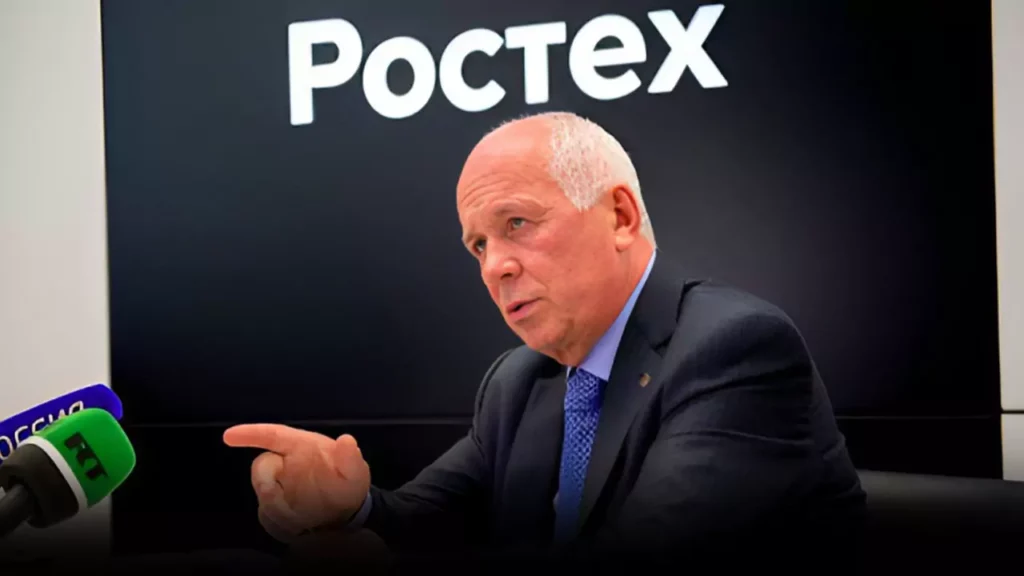
Chemezov lobbied for the creation of the state corporation Rostekhnologii, later rebranded as Rostec, in 2007. The move granted the corporation extensive powers, allowing entrepreneurial activities and reduced government control. Despite resistance, Rostec claimed assets in various sectors, prompting criticism for its unchecked expansion.
Challenges under Medvedev’s Presidency (2008-2012)
Dmitry Medvedev’s presidency brought challenges for Chemezov, as the president excluded him from the modernization commission and advocated transforming state corporations into joint-stock companies. Medvedev’s scepticism and public criticism strained Chemezov’s bureaucratic position.
Return to Prominence under Putin (2012-Present)
With Vladimir Putin’s return in 2012, Chemezov maintained his position, overseeing Rostec’s growth to over 700 organizations. Rebranding and strategic investments strengthened Rostec’s image, and Chemezov’s influence extended to key appointments, including the controversial hiring of Anatoly Serdyukov.
Political Connections and Future Prospects
Chemezov’s influence extends beyond Rostec, with connections to regional governors, State Duma deputies, and figures like Denis Manturov. His ability to navigate political shifts and maintain Putin’s trust has solidified his position, making him a resilient figure in Russia’s power structure.
Building Political Influence and Nationalization
Chemezov patiently built his political and administrative weight, expanding Rostec’s reach into various sectors, even those where nationalization seemed unnecessary. He implemented a strategy of declaring industries critical to national security, justifying the need for state control.
Chemezov’s influence grew steadily, and he remained a trusted ally of Putin, navigating through power struggles within the Russian establishment. His ability to balance political maneuvering with economic success solidified his position as a key player in Russia’s arms industry.
Key milestones in Chemezov’s career
| Year | Event |
|---|---|
| 1952 | Born on August 20 in Cheremkhovo, Irkutsk region, USSR |
| 1975 | Graduated from the Irkutsk Institute of National Economy |
| 1975-1976 | Worked at the Irkutsk Research Institute of Rare and Non-Ferrous Metals |
| 1980-1988 | Worked at the scientific and production association “Luch” |
| 1983 | Headed the association’s representative office in Dresden, GDR |
| 1989-1996 | General Director of FSUE, “Rosoboronexport” |
| 1996-1999 | Head of the foreign economic relations department of the Administration of the President of the Russian Federation |
| 1999-2000 | General Director of FSUE Promexport (later part of Rosoboronexport) |
| 2000-2004 | Deputy General Director of the Foreign Trade Association “Sovintersport” |
| 2004-2007 | Russian representative to the BRICS Business Council |
| Nov 2007-Present | General Director of the State Corporation for Promoting the Development, Production, and Export of High-Tech Industrial Products “Rostekhnologii” (later Rostec) |
| Apr 2014 | Member of the Military-Industrial Commission of the Russian Federation |
| 2013 | Chairman of the Board of Directors of JSC United Industrial Corporation, Oboronprom |
| Dec 2006 | Elected to the bureau of the party’s Supreme Council of “United Russia” |
| Apr 2007 | Chairman of the All-Russian public organization “Union of Russian Mechanical Engineers” |
| 2005-2013 | Chairman of the Board of Directors of JSC United Industrial Corporation Oboronprom |
Awards and Recognitions
| Order of Merit to the Fatherland of the 2nd class (2012) | Date | Description |
|---|---|---|
| Order of Merit to the Fatherland of the 3rd class | 2012 | Recognition for outstanding merit and contributions to the Russian state. |
| Order of Merit to the Fatherland of the 4th class | 20 August 2007 | Awarded for military and engineering cooperation with foreign countries. |
| Recognition of outstanding merit and contributions to the Russian state. | Honoring significant contributions to the well-being and prosperity of Russia. | |
| Order of Friendship (2009) | 2009 | Recognizes individuals for their efforts in strengthening international cooperation and friendship between Russia and other nations. |
| National Order of the Legion of Honour (France, March 2010) | March 2010 | Awarded by France for contributing to the cooperation between France and Russia in high-tech manufacturing. |
| Order of Saint Righteous Grand Duke Dmitry Donskoy (Russian Orthodox Church) | Recognition within the Russian Orthodox Church for virtuous and righteous actions. | |
| Order of Holy Prince Daniel of Moscow (Russian Orthodox Church) | Honoring contributions to the Russian Orthodox Church, particularly in the Moscow region. | |
| Order of Saint Seraphim of Sarov of the 2nd class (Russian Orthodox Church) | Recognized for exceptional service and devotion to the Russian Orthodox Church. | |
| Russian Government Award in Science and Engineering for 2004 | 2004 | Acknowledgment for outstanding achievements in science and engineering. |
| Person of the Year in 2004 in the area of Defense Industry Complex | 2004 | Recognized for leadership and contributions to the defense industry complex. |
| Leader of the Russian Economy in 2004 (awarded by the International Forum “World Experience and Russian Economy”) | 2004 | Acknowledgment for leadership and positive impact on the Russian economy. |
| Suvorov Prize awarded by the Military Academy | Recognition for significant contributions to military science and strategy. | |
| Honoured Resident of the city of Irkutsk (granted on 21 April 2011) | 21 April 2011 | Granted for prominent achievements in the area of social, economic, and cultural development of the city of Irkutsk. |
Marital life details
While working in the German Democratic Republic (GDR), Sergey Chemezov got married twice. During his time working in the German Democratic Republic (GDR), he had the opportunity to meet his first wife, Lyubov, and they got married. They had three children.
Their oldest son, Stanislav, was born in 1973 and has pursued a career in business. He currently owns the company Medpharmtechnology and holds positions on the board of AvtoVAZenergo. Additionally, he is a co-owner of the Meridian company, which specializes in the hotel industry.
Alexander Sergeevich Chemezov, Sergey and Lyubov’s second son were born in 1985. He decided to pursue a career in medicine. Sergei and Lyubov decided to divorce after nearly three decades of marriage.

Sergey Chemezov married Ekaterina Ignatova, a businesswoman who runs a chain of Moscow restaurants and is a shareholder in the Itera gas holding, in the early 2000s. She is also in charge of several reputable businesses. Some speculate that Ekaterina’s successful business ventures and wealth are the result of her husband’s connections and influence. Sergei, in particular, facilitated her receipt of a tender for the development of the Lada Connect system.
Ekaterina Ignatova had an adult daughter, Anastasia, after marrying Sergey Chemezov. Anastasia is passionate about political science and, after completing her dissertation, worked at MGIMO’s Department of Political Theory.
Anastasia assisted in establishing the Creative MedCenter company in 2011, which faced challenges and was eventually liquidated. Anastasia, undeterred, pursued her entrepreneurial dreams and founded her own pharmaceutical company in 2017.
Political Rumors (2005-2007)
At the end of 2005, Vladimir Putin reportedly offered Sergey Chemezov the position of director of the FSB, but Chemezov declined, opting to lead the Union of Mechanical Engineers of Russia. Despite rumours linking him to a potential political career, Chemezov asserted he had no political ambitions.
Net Worth of Sergey Chemezov
It proves challenging to ascertain Sergey Chemezov‘s precise earnings due to the limited availability of information. However, details about his family’s income are more accessible. According to Forbes, in 2012, the head of Rostec, along with his wife Ekaterina Ignatova, earned 518 million rubles, with his contribution being around 62.5 million.
In 2013, the Chemezovs’ wealth was estimated to be around 803.3 million, and it increased to over 1 billion rubles by 2016. According to the latest update from Forbes, Sergei Viktorovich and Ekaterina Ignatova are reported to have around $1 billion available to them at the moment.
According to Chemezov’s declaration, his income for 2018 surpassed 332 million rubles, marking a remarkable increase of over 70% compared to the previous year’s earnings of 193.5 million rubles. Additionally, Chemezov’s wife earned more than 16 million rubles in 2018, a significant decrease from her earnings of 68.8 million rubles the year before. This amount now constitutes the annual income of the minor child of the Rostec head, who had no personal income the previous year.
Chemezov possesses four land plots totalling approximately 70 thousand square meters, three residential buildings, an apartment, and various non-residential premises. Moreover, he owns a fleet of five cars, including the GAZ-13 Chaika, Zaporozhets ZAZ-965A, GAZ 69 E-68, ZIL-410470, and the Lada Ellada electric car. Additionally, he owns a Harley Davidson motorcycle and a boat. Chemezov’s wife’s car collection comprises an old Volga GAZ M21, Mitsubishi L200, Mercedes Benz GL500, and Land Rover.
Real Estate Controversy
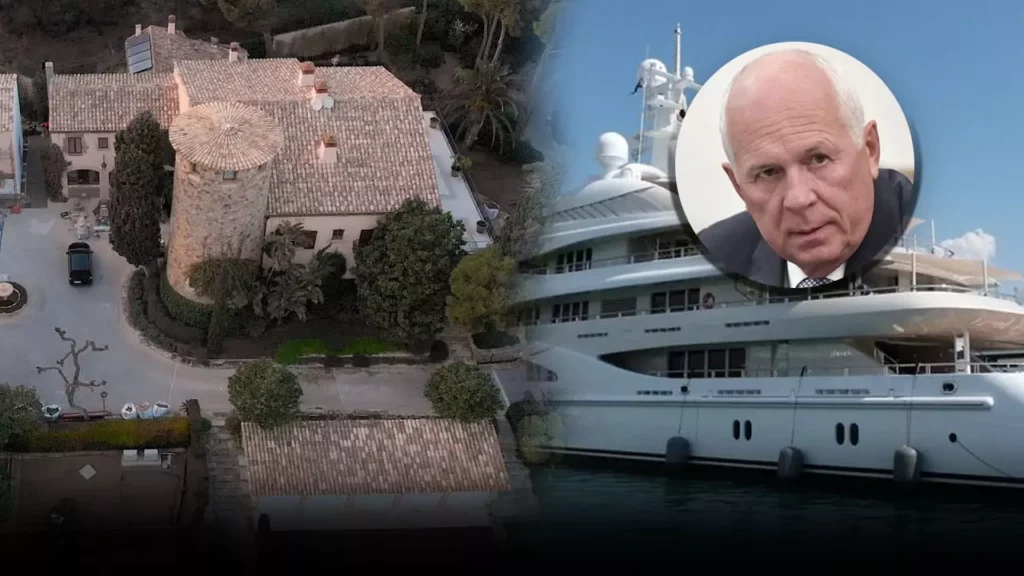
“My Moscow apartment here was valued at crazy money – five billion. If someone is ready to pay me five billion dollars, I’m ready to give them the keys right now and say: “That’s it, give me the money.” It’s not worth that kind of money,”
In 2019, a scandal surrounding the real estate of the Chemezovs came to light, which was initially brought to attention by Alexei Navalny. The controversial politician, Sergey Chemezov, is said to own a luxurious two-story apartment near the Kremlin.
This opulent residence spans an impressive 1.4 thousand square meters and is estimated to be worth over 5 billion rubles.
In response to this, Sergey said –
I don’t hoard. I don’t store money in corners. I don’t have yachts or planes. There is a nice big house where we live with our family. There is a large apartment… I’m not going to build palaces, and there’s no need for one. What I have is quite enough
Navalny conducted an investigation in February that delved into the property owned by the wife of Chemezov, situated in the Moscow Hotel building on Okhotny Ryad near the Kremlin and Red Square. He detailed that the apartment spans two rooms across the 12th and 13th floors, with a total area of 1434 sq.m. Navalny pointed out that in the declaration of Chemezov’s wife, Ekaterina Ignatova, the apartment is classified as a non-residential space. The Anti-Corruption Foundation (FBK) estimated the apartment’s value at 5 billion rubles, drawing on a similar property’s sale advertisement in the same building but in a different area.
Controversies of Sergey Chemezov
Sergey Chemezov found himself under scrutiny following the Pandora leak. This is not the first time his name has been linked to allegations of corruption and financial impropriety. The Pandora leak, consisting of 12 million confidential financial files on offshore wealth in global tax havens, has brought forth new revelations that add to the cloud of scandal surrounding Chemezov.
2016 Panama Papers
The Pandora leak follows earlier allegations stemming from the Panama Papers in 2016. These documents revealed that Chemezov’s son, Stanislav, owned an offshore company benefiting from a $550 million national fibre-optic superhighway project by Rostec, the state-owned conglomerate that Chemezov has been heading since his appointment by President Vladimir Putin in 2007.
Luxurious Properties
In 2019, the Organized Crime and Corruption Reporting Project (OCCRP) raised further concerns, alleging that Chemezov’s relatives and close associates owned luxurious villas in the exclusive Spanish enclave of S’Agaro, worth tens of millions of euros. Opposition politician Aleksei Navalny added fuel to the fire, claiming that Chemezov’s wife was the registered owner of a multimillion-dollar apartment in Moscow.
Pandora Leak Revelations

The leaked documents suggest that Chemezov’s stepdaughter, Anastasia Ignatova, owns an offshore company named Trident Trust, which in turn owns an 85-meter luxury yacht called Valerie, valued at around $140 million. The leak also ties Chemezov’s relatives and associates to several more luxury villas in Spain, estimating foreign properties linked to Chemezov to be worth about 22 billion rubles ($302 million).
Chemezov’s Denials and Kremlin’s Response
In response to previous exposés, Chemezov vehemently denied amassing wealth, asserting –
“I don’t accumulate wealth. I don’t stuff money in the corners. I don’t have yachts or aeroplanes.”
However, the Pandora leak appears to contradict these claims.
Kremlin’s Stance
Despite the mounting evidence and controversies surrounding Chemezov, Kremlin spokesman Dmitry Peskov downplayed the revelations, stating on October 4 that they haven’t seen any “hidden wealth” in the reports. Peskov, who himself has faced accusations of unexplained wealth, suggested that the documents primarily highlight poor financial regulations in the United States.
Chemezov’s Background: From KGB to Putin’s Inner Circle
Sergey Chemezov, 69, is deeply entrenched in the political system crafted under Vladimir Putin, often referred to as “Putin’s kleptocracy.” A former KGB officer, Chemezov worked on espionage missions in Germany during the late 1970s and lived in the same Dresden apartment building as Putin in the 1980s, fostering a close relationship.
Putin’s Appointments
Over the years, Putin appointed Chemezov to key positions in various state-owned companies, including Promeksport, arms dealer Rosoboronesport, and ultimately Rostec. The sprawling defence and technology giant, comprising over 700 enterprises, faced Western sanctions after Russia’s annexation of Crimea in 2014.
FSB Scandal
Chemezov’s Influence on the FSB
Sergey Chemezov, a prominent figure within the FSB, found himself entangled in a scandal involving high-ranking officials within the organization. Known as one of the third most influential figures in the FSB, alongside Alexander Bortnikov and Igor Sechin, Chemezov’s role extends beyond the traditional boundaries.
Extortion Attempt and the Fallout
Attempts made by a group of FSB officials from Moscow to extort large bribes from the board of the Snegiryov Research Institute of Technology ended in disaster. Five officers, including a high-ranking official, Alexey Kruglov, were detained. The attempt not only failed but also led to potential purges within the Moscow FSB directorate.
Corruption Unearthed at the Institute
FSB officials discovered the abuse during an inspection at the Institute, revealing that vacant positions were being paid regular salaries. In an attempt to conceal their findings, the officials met with the Institute’s director, Igor Grigoriev, and attempted to extort millions of rubles for each discovered irregularity. In the face of threats, Grigoriev turned to the FSB Internal Security Directorate, launching a carefully planned provocation.
Provocation and High-Stakes Bribery
In response to the extortion attempt, a ruse was staged in which the company’s board of directors, in collaboration with FSB officials, set the bribe amount at 3 million rubles. The bribe was to be handed over in a McDonald’s restaurant to Alexey Kruglov, the deputy chief of the 7th inter-district department. The operation was successful in apprehending Kruglov and exposing the FSB’s corruption.
Internal Conflicts and Chemezov’s Victory
The scandal that is still going on is likely to make things worse within the FSB, with Chemezov possibly coming out on top. The Snegiryov Research Institute of Technology may not have been affected by the scandal because of his power, especially in Lubyanka.
At the same time, the FSB board for Moscow and the Moscow Oblast is being inspected for corruption, and people in its directorate may step down as a result. Alexei Dorofeev, who has been head of the board since 2012, is the only person who seems safe in this mess.
Russia-Ukraine War: Another Story
Payment Challenges Strain India-Russia Relations
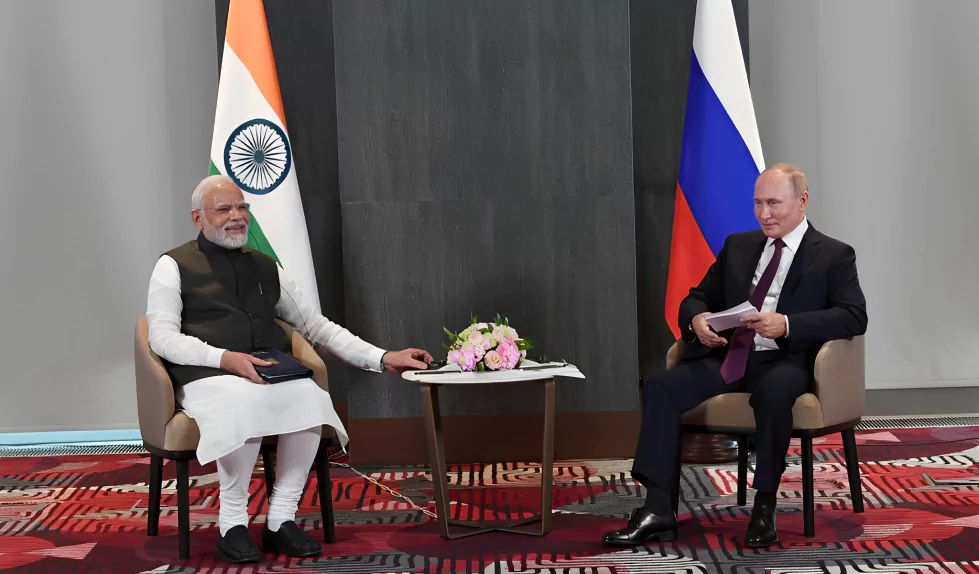
On January 16, 2023, there were reports that discussed the challenges in the payment process between India and Russia, particularly in the context of the sanctions imposed on Russia by Western countries following its invasion of Ukraine. The CEO of Russia’s military-industrial conglomerate Rostec, Sergey Chemezov, visited India to address these payment issues. India, a significant importer of crude oil and military equipment from Russia, has faced disruptions in payment mechanisms due to the sanctions.
The text highlighted that despite efforts to explore various options, including the opening of Vostro accounts, the payment issue was not resolved, leading to a buildup of dues from India to Russia. The accumulation of these dues raises concerns, with the Russian team indicating that it might impact future supplies from Russia to India.
It mentioned that one of the key military imports affected by the payment problems is the S400 air defence system. India has previously purchased five units of the S400 system, and while two batteries have been delivered, three more are pending. The S400 is described as one of the most advanced air defence systems globally, and its deployment has begun along the Indo-Pakistan border.
Sergey Chemezov, the CEO of Rostec, is a trusted lieutenant of Russian President Vladimir Putin and plays a significant role in overseeing Russia’s military-industrial complex. His visit to India is connected to the broader issue of payment challenges and potential implications for critical military imports, such as the S400 system, highlighting the importance of resolving payment issues for both countries.
Sanctions
Since 2014, Sergey Chemezov has been subjected to sanctions due to Russia’s annexation of Crimea and its role in the conflict with Ukraine. He has been subjected to sanctions by the European Union, the United States, and Australia.
Chemezov was sanctioned by the European Union in September 2014 due to his involvement in the Russia-Ukraine conflict. On that very day, the U.S. Treasury imposed sanctions on the company that he is in charge of, as part of a wider prohibition on the Russian defence industry.
On March 3, 2022, the United States took additional steps to increase pressure by implementing visa restrictions and freezing the assets of Chemezov. The same measures were also applied to his wife, sons, and stepdaughter. This action was taken in response to the Russian invasion of Ukraine in 2022.
In October 2022, Spain temporarily seized Chemezov’s yacht, named ‘Valerie,’ in Barcelona. This action was taken in response to the sanctions imposed on him. The yacht is valued at $140 million.
| Date | Action | Reason |
|---|---|---|
| 28 April 2014 | Barred from entering the U.S. | Annexation of Crimea by the Russian Federation |
| 2014 | Sanctioned by the UK government | Russo-Ukrainian War |
| 12 September 2014 | Sanctioned by the EU and mentioned by the US Treasury | Russia-Ukraine conflict |
| February 2019 | Discovery of wife’s apartment with market value | Charitable contributions influencing Novaya Gazeta press since 2014 |
| 3 March 2022 | U.S. imposes visa restrictions and freezes assets | 2022 Russian invasion of Ukraine |
| 15 March 2022 | Spain seizes yacht ‘Valerie’ in Barcelona | 2022 Russian invasion of Ukraine |
Summary
Sergey Chemezov, born in 1952, started from humble beginnings, growing up in Cheremkhovo. His journey from academic excellence led him to a career in intelligence, notably with the KGB in East Germany. Building enduring friendships with Vladimir Putin and Nikolay Tokarev, Chemezov transitioned into international sports and later became a Kremlin aide.
In 1999, Chemezov entered the arms trade, facing opposition but finally creating Rosoboronexport. His leadership has faced challenges and controversies, including sanctions. Simultaneously, he lobbied for and established Rostec State Corporation in 2007.
Despite challenges under Medvedev’s presidency, Chemezov’s influence flourished upon Putin’s return in 2012. Rostec expanded further, concretizing Chemezov’s political connections.
Political rumours and controversies, including the Pandora leak, have surrounded his wealth and assets, but he has consistently denied having much wealth.
In 2023, Chemezov faced challenges in India-Russia relations due to payment disruptions caused by Western sanctions. Sanctioned since 2014, his assets were frozen in response to Russia’s invasion of Ukraine in 2022. Despite the controversies, Chemezov remains a resilient figure in Russia’s power structure.





